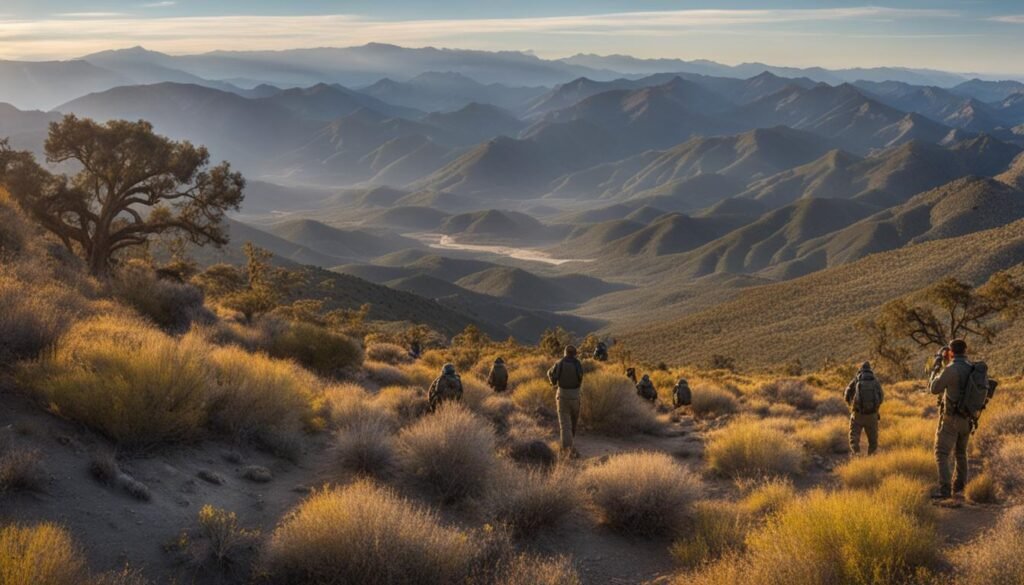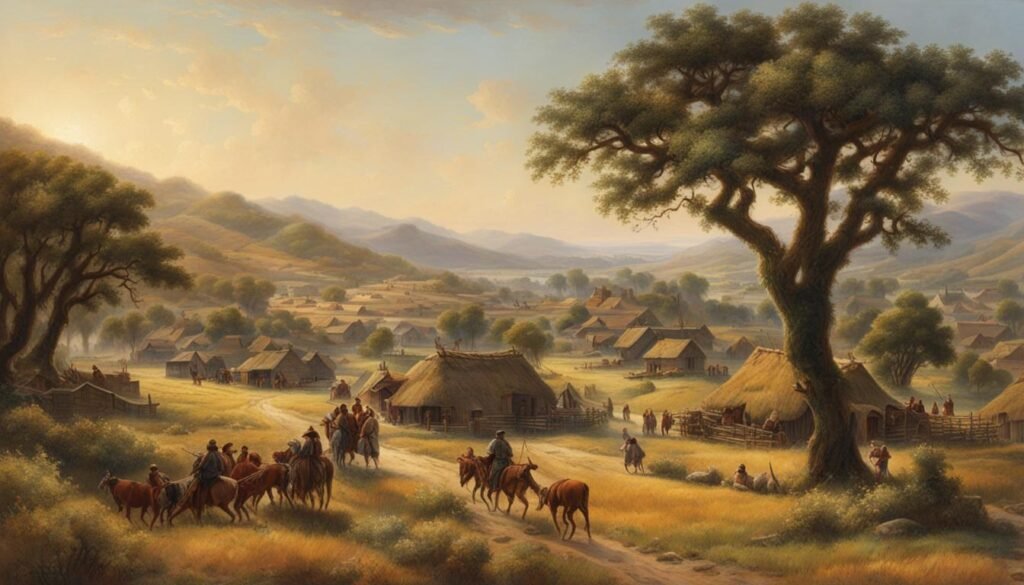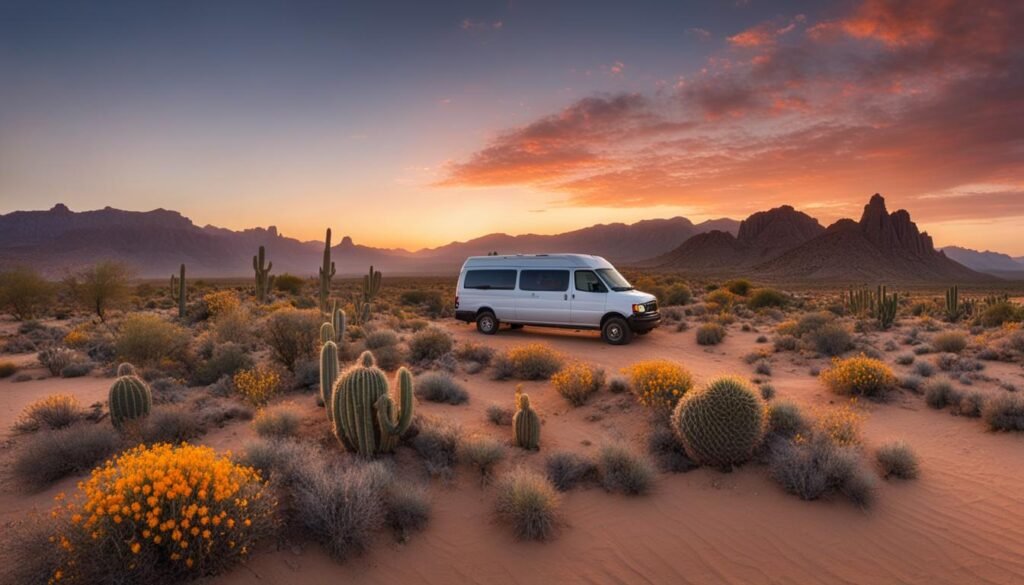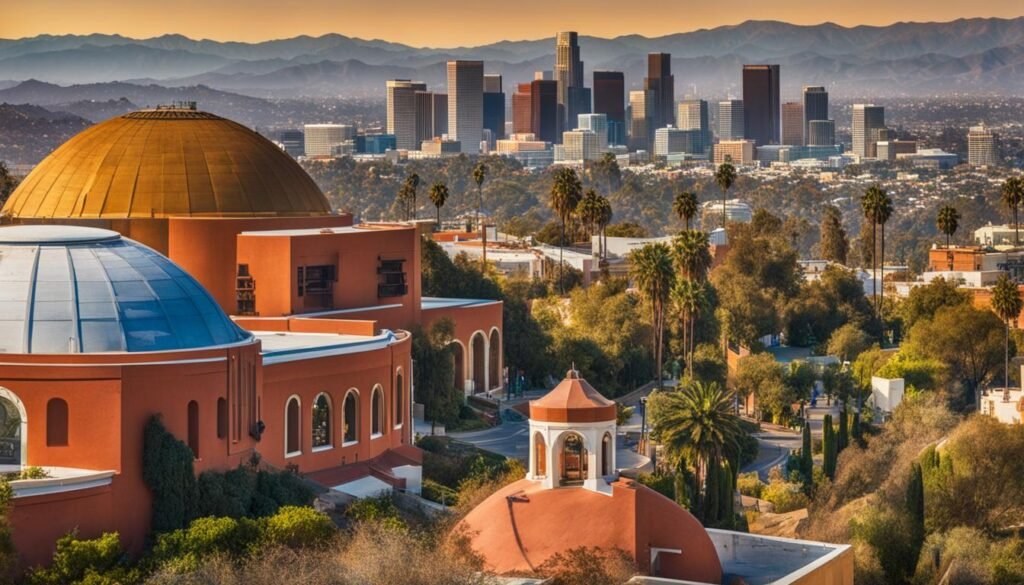Welcome to my article on wildlife conservation. As an avid nature enthusiast and advocate, I believe that protecting wildlife and preserving our natural world are vital for the well-being of our planet. In this article, we will explore the importance of wildlife conservation, particularly in California, and the efforts being made to safeguard endangered species and preserve biodiversity.
Key Takeaways:
- Wildlife conservation plays a crucial role in preserving animals, plants, and their habitats.
- Climate change and environmental influences have a significant impact on wildlife conservation efforts.
- Conservation strategies include the creation of wildlife corridors and the protection of endangered species.
- Wildlife conservation contributes to broader environmental conservation and the preservation of biodiversity.
- Ethical considerations, such as animal welfare and environmental sustainability, are important in wildlife conservation.
The Value of Wildlife Conservation
Wildlife conservation plays a significant role in safeguarding our planet and benefiting humanity. It encompasses various aspects that contribute to the preservation of our natural world.
Habitat Conservation: One of the key objectives of wildlife conservation is to protect and preserve habitats. By doing so, we ensure that animals and plants have a suitable environment in which they can thrive. This includes conserving forests, wetlands, and marine ecosystems, as they are vital to the survival of countless species.
Environmental Conservation: Wildlife conservation goes hand in hand with broader environmental conservation efforts. By preserving habitats and protecting wildlife, we contribute to the overall health and sustainability of our ecosystems. This, in turn, benefits not only the animals but also the surrounding environment and the communities that rely on it.
Wildlife Management: Effective wildlife management practices are crucial for maintaining healthy populations of species. Conservation strategies involve techniques such as habitat restoration, species reintroduction, and wildlife monitoring. By implementing these strategies, we can ensure the long-term survival of various wildlife species.
Preservation of Biodiversity: Biodiversity is essential for the resilience and functioning of ecosystems. Wildlife conservation efforts contribute to the preservation of biodiversity by protecting different species and their habitats. By safeguarding biodiversity, we maintain the intricate balance of nature and promote the well-being of countless organisms.
Conservation Projects: Conservation projects, both large-scale and local, play a crucial role in protecting endangered species and promoting sustainable development practices. These projects focus on conservation strategies tailored to specific regions and species, ensuring the preservation of wildlife and their habitats.

By conserving wildlife, we not only protect our natural heritage but also contribute to the overall well-being of our planet. Wildlife conservation is a collective effort that requires awareness, collaboration, and dedicated action from individuals, organizations, and communities alike.
Ethical Considerations in Wildlife Conservation
When it comes to wildlife conservation, ethical considerations play a significant role. Conservation organizations, such as The Nature Conservancy, are at the forefront of advancing effective and lasting conservation practices worldwide. These organizations are committed to prioritizing environmental sustainability, striving to strike a balance between human activities and the preservation of nature.
Another crucial aspect of ethical wildlife conservation is animal welfare. The well-being of individual animals, their flourishing, and the mitigation of suffering are increasingly recognized as key ethical concerns in conservation efforts. Conserving biodiversity and protecting ecosystems go hand in hand with promoting animal welfare.
Perspectives on wildlife conservation ethics can vary. Some emphasize the intrinsic value of species, ecosystems, and wild nature itself. Others focus on the instrumental value of wildlife to human beings, recognizing their vital role in ecosystems and the benefits they provide. Striking a balance between these perspectives is essential in developing effective and comprehensive conservation methods.
Conservation methods aim to address dilemmas and conflicts arising from these differing perspectives. The primary goal is to protect species, conserve ecosystems, and promote animal welfare while considering the wise use and stewardship of natural resources.

By carefully considering ethical considerations, conservation organizations and practitioners can ensure that their efforts are guided by principles of compassion, sustainability, and the long-term well-being of both wildlife and ecosystems.
The Role of Conservationists in Wildlife Conservation
Conservationists play a crucial role in wildlife conservation. As dedicated staff, scientists, and members of conservation organizations, they work across more than 70 countries and territories to advance effective and lasting conservation practices. Through their tireless efforts, conservationists develop breakthrough ideas, amplify local leaders, and influence policy to make the highest possible impact on the climate and biodiversity crises.
Conservation initiatives encompass a wide range of actions, including habitat protection, restoration, and sustainable practices. By actively engaging in these initiatives, conservationists contribute to biodiversity conservation and the preservation of fragile ecosystems. They work tirelessly to protect and restore habitats, creating safe havens for diverse species to thrive.
Conservation organizations provide a valuable platform for collaboration, knowledge-sharing, and funding to support these initiatives. They bring together experts, communities, and stakeholders to work towards a shared goal of safeguarding our natural world for future generations. Through their efforts, conservation organizations play a vital role in mobilizing resources and advocating for sustainable practices that ensure the long-term health and well-being of our planet.
Together, conservationists and organizations are working towards a future where the beauty and diversity of wildlife are preserved for generations to come. By committing to conservation initiatives and embracing sustainable practices, we can all play a part in protecting our planet’s precious biodiversity.
Conclusion
Protecting wildlife and preserving biodiversity is essential for the well-being of our planet and future generations. Through dedicated conservation efforts, we can ensure the survival of habitats and species that make up our natural world. By understanding the value of wildlife conservation and considering the ethical implications, we can work towards effective and sustainable strategies that promote environmental sustainability and animal welfare.
Conservation organizations, such as the National Wildlife Federation and The Nature Conservancy, play a crucial role in advancing these efforts. Their collaboration with conservationists and communities worldwide allows for the development of breakthrough ideas and the implementation of conservation initiatives. Together, we can make a positive impact on our planet and leave a legacy of preserved biodiversity.
By supporting wildlife conservation initiatives, we contribute to the protection of our natural heritage. Through collective action, we can safeguard the habitats, ecosystems, and species that enrich our lives. As individuals, we have the power to advocate for conservation, make sustainable choices, and support the work of conservation organizations. Together, we can create a better future for both wildlife and humanity.
FAQ
What is wildlife conservation?
Wildlife conservation is the preservation and protection of animals, plants, and their habitats to ensure the long-term survival and well-being of species and ecosystems.
Why is wildlife conservation important?
Wildlife conservation is important because it ensures the preservation of biodiversity, protects natural habitats, and contributes to broader environmental conservation efforts. It also plays a crucial role in maintaining ecosystem health and promoting sustainable development practices.
What are some conservation strategies?
Conservation strategies include habitat protection and restoration, species reintroduction, wildlife monitoring, and the creation of wildlife corridors. These strategies aim to preserve and maintain healthy populations of species and their natural habitats.
What ethical considerations are involved in wildlife conservation?
Ethical considerations in wildlife conservation include the balance between human activities and the preservation of nature, the well-being of individual animals, and the wise use and stewardship of natural resources. Conservation methods strive to address these ethical dilemmas and protect species, ecosystems, and animal welfare.
What is the role of conservationists in wildlife conservation?
Conservationists play a crucial role in wildlife conservation by developing innovative ideas, collaborating with communities and organizations, and influencing policies to advance effective and lasting conservation practices. They work towards the preservation of biodiversity and the long-term sustainability of ecosystems.







